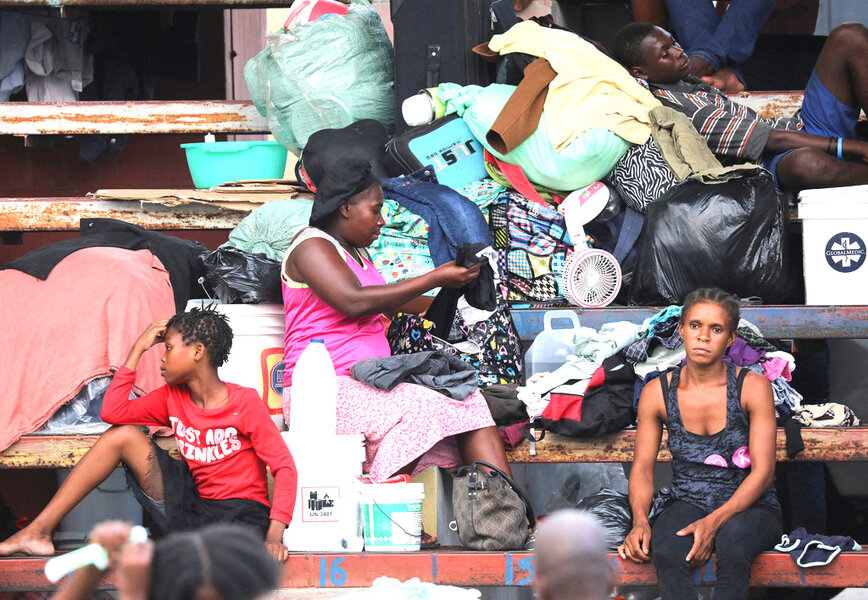A modest plan to renew Haiti
Loading...
When it comes to stabilizing failing states and restoring democracy, there’s an unresolved debate over what creates the conditions for success – security or development. On Monday, the United Nations Security Council gave a nod to the former when it approved a new international force to help end a spiral of violence by street gangs in Haiti. The Caribbean nation has been without an elected government since the assassination of its prime minister more than two years ago.
The decision is not without critics. Yet in its modesty – a small complement of police officers and some soldiers led by Kenya will help secure critical infrastructure and institutions – the intervention marks a departure from past large-scale U.N.-led interventions.
As such, it reflects two important principles learned elsewhere. The first is that countries rebuild from within, when competing groups find shared purpose. The second is that the protection of innocence is as much a vital international interest as, say, trade or migration.
“It was more than a simple vote,” Haitian Foreign Minister Victor Geneus said of the Security Council decision. “It is an expression of solidarity with a population in distress.”
In Kenya, the willingness to lead an intervention that no other country would reflects a deeper African norm. “The people who are in Haiti have an African descent, and we have an ubuntu philosophy in Africa: I am because you are, and because you are, I am,” Vincent Kimosop, an economist and policy analyst, told Voice of America.
Although it took a year of negotiations, the vote on Monday affirmed the enduring potential of diplomacy. China and Russia dropped their opposition after months of dialogue led by the United States. If the new force, which will be deployed in January, restores some stability and calm, it may help Haiti rebuild on stones already laid. A broad bloc of civil society, business, and political leaders worked out a transition blueprint last December.
One country that has lately demonstrated the unity to lift itself from collapse is Somalia, Kenya’s northern neighbor in the Horn of Africa. In recent months, the government has joined hands with rural herders and clan elders to regain control of large swaths of the country overrun for more than a decade by the Islamist extremist group Al Shabab. As The Wall Street Journal recently reported, the restoration of security now offers an opportunity to renew trust through restored civic goods such as health care, clean drinking water, and honest courts.
Peace “must be proactively waged, because what is at stake for all of us is the quiet miracle of an ordinary life, a life free from violence,” said Pramila Patten, U.N. special representative of the secretary-general on sexual violence in conflict, in a speech last year. “If we are to truly meet our responsibility to protect, then none of us can rest until every woman and girl, every innocent civilian, can sleep under the cover of justice.”





